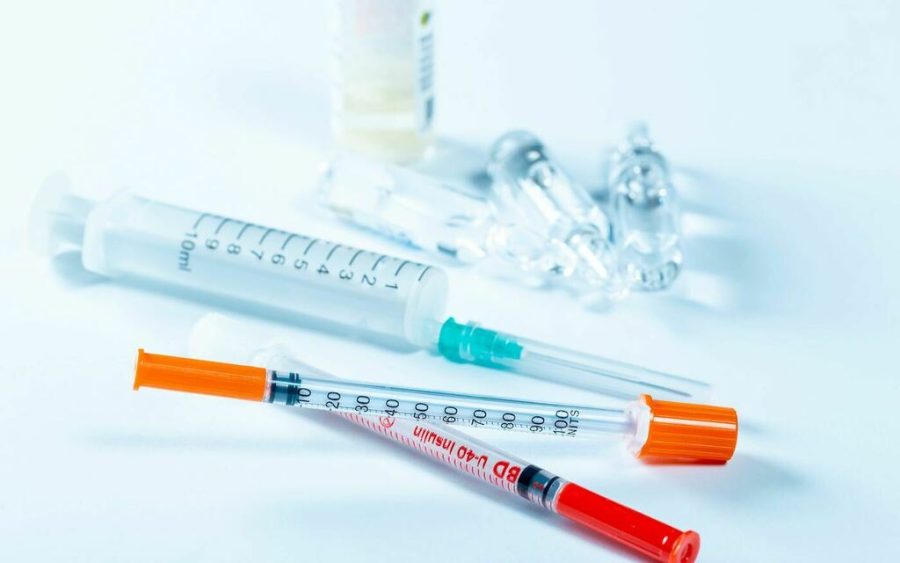Insulin Cap Doesn’t Create Enough Equity
The American healthcare system is a disaster and capping the cost of insulin to $35 for those with health insurance will not fix it.
On March 1, 2022, in his State of the Union address, President Biden highlighted how high the cost of insulin is and proposed a price cap of $35 a month. In reality, this barely makes a dent in the costs for those living with diabetes and does nothing except potentially set a precedent for the millions of other Americans who encounter the healthcare industry.
While insulin is a considerable cost for diabetics, it is not the only one. Insulin pumps can cost around $8,000, not including the necessary supplies to use them. Simpler items such as blood test strips cost about $1 each. This price may not seem like much, but some diabetics must test their blood sugar up to 10 times a day, totaling about $100 every 10 days. Even with insurance, many diabetics find these out-of-pocket costs unbearable.
Diabetes supplies are not the only healthcare-related expenses that are hard to support. Similarly to insulin, the epinephrine inside Epi-Pens, another life-saving drug, costs $1 for companies to produce, but consumers spend an average of $600 for two pens. In the United Kingdom, the same Epi-Pens cost £69 or about $74. Another example is childbirth, which can be incredibly expensive; it costs about $8,462 to give birth without complications in New York, even with insurance. With complications, costs can be $12,114 and beyond.
One might argue that these costs reflect the quality of care given by hospitals in the United States, however, that is not even close to the case. The maternal death rate in the United States is 23.8 deaths per 100,000 births. In comparison, Finland charges its citizens about $42 per day for a hospital stay, and it is widely considered one of the safest places to give birth, with a maternal mortality rate of three deaths per 100,000 births. The cost versus benefit of the American healthcare system is horrendous, especially for a country that boasts such a large GDP.
A foundational element of the healthcare industry is profit. Drug companies have relied on price gouging to make huge profits off citizens who have no choice but to buy life-saving medication such as insulin. In 1923, when Frederick Banting created synthetic insulin, he refused to be named on the patent and sold it for only $1 so that no one would be inhibited from receiving the drug and living a healthy life due to its cost. That hope was not realized, as many people today spend about $450 per month on insulin, even with insurance.
The point is that the millions of Americans who use the healthcare industry are at the mercy of its incredibly high prices. The government capping the cost of insulin for those who have insurance is valuable, but it doesn’t mean that we are on a path to addressing other issues in healthcare, such as childbirth costs or the inequality of care.
It should be noted that taking the step to cap the cost of insulin was not initiated by the healthcare industry. If this bill were to pass the Senate and become law, which is unlikely, it would not be because the insurance and drug companies saw the error of their ways, which is clear from the fact that similar legislative efforts have had no support from the pharmaceutical industry. Instead, it would be the government forcing these companies to adhere to this price cap, and in response, the companies could make passing any other price cap near impossible.
On another note, the price cap is only for those who have insurance and does nothing to address the issue of access to healthcare. What about people who don’t have insurance? For people with conditions where a drug is needed to survive, it can be a death sentence to be without insurance. Health insurance is typically tied to employment in the United States, but not all jobs come with benefits. The New York Times interviewed Anthony Moore, a shift manager at a Burger King near Tampa, Florida who makes $9 per hour. He is uninsured, but his two daughters receive healthcare through Medicaid. He does not make anywhere near enough money to insure himself, and there does not seem to be a solution on the horizon. A possible fix, the universal healthcare proposed by Democrats, still appears to be a pipedream and is, unfortunately, no closer to becoming a reality.
Another group who lives in the United States and are victims of the high costs and healthcare inequality are people who do not have legal status. Undocumented immigrants cannot legally work in the United States and, therefore, cannot receive any benefits through employment; they are also unable to utilize Medicare. The only remaining option would be to buy the costly private health insurance, and prices rise dramatically with pre-existing conditions. Undocumented immigrants need and have a right just like anyone else to life-saving drugs such as insulin, but our healthcare system makes it almost impossible.
To make healthcare more affordable and, in turn, equitable for everyone living in the United States, we need to have universal healthcare. At the very least, everyone needs to have access to a yearly physical, basic medical necessities and medications or procedures they need to survive. In the face of an ill family member, families should not be going bankrupt to keep their loved ones alive. We could create a system similar to the United Kingdom, where the government negotiates drug prices with drug companies so that medication, technology, etc., are available at a reasonable price.
A simple price cap on just insulin, only for the insured, does not move us closer to a responsible and equitable healthcare system.
Claire Bickel, FCRH ’24, is a political science and international political economy major and history minor from Branford, Conn.










































































































































































































